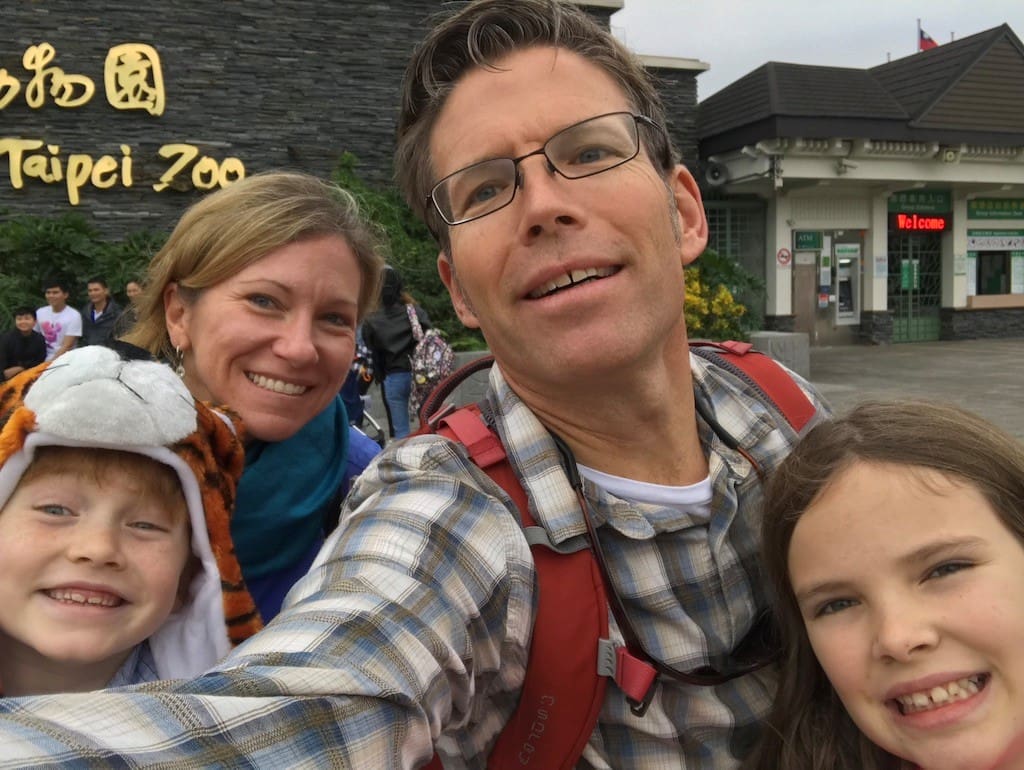
Many people experienced working remotely for the first time last year, but it was business as usual for Andy Blanchford, LIC, president and CEO of Blanchford Landscape Group, based in Bozeman, Montana.
Blanchford runs his company currently from Germany and plans to for the next three years at least. He has also lived in Okinawa, Japan, for the past four years.
Taking A Leap

He made this international move back in 2014 when his wife, Elizabeth, who served in the Air Force was offered an opportunity to re-engage her military career. While she was working in Germany for five months, she found another one-year opportunity. Blanchford says his wife laid it on the line that she was going to take the opportunity.
“She lit a fire under me,” he says. “I talked it over with my team and said I wanted to try this. The plan was not for me to be gone, but to come back and forth.”
He says he eased the team into it a bit by being gone two weeks at a time at first. Blanchford says they had a pretty good team in place when they began experimenting with him going remote in 2014. He says he always wanted to keep running the business when they were planning the move to Germany and it helped him feel good about leaving as it provided some roots.
“What made it feel good to me is we have a house in Montana, we would go home every summer,” he says. “When the kids aren’t in school, I would be in Montana, and I would go back about once a quarter for two weeks as well.”
While his wife was working the reserve duty job in Germany, she found a job with the United States Agency for International Development. In 2016, they returned to the U.S. so Elizabeth could train in Washington D.C. while Blanchford and their kids went back to Montana. By Christmas of 2016, they moved to Japan.
“It will be hard at some point when we decide we’re done with this adventure,” Blanchford says. “Because we’ve always been asking ‘where else can we go?’”
Working in Japan
During his time in Japan, Blanchford says he didn’t get to explore the landscapes as much as he wanted to.

“In a perfect world I would have found a gardening company to work for free just to learn more about it,” he says.
However, as a CEO and running the household by himself for the most part, this took up a lot of his time. While in Japan, he was 16 hours ahead of his employees in Montana.
“I would get up at four in the morning and get ready and have a lot of my meetings,” Blanchford says. “I would have some meeting with someone at the company at 5 a.m. almost every day of the week. It was great because I could do that before the kids were up.”
Benefits and Drawbacks of Distance
He says the main benefit of running his business from another country is the freedom, but he says this is a double-edged sword. Blanchford says being remote forces his staff to figure things out on their own as the time difference means Blanchford is unable to step in and help put out small fires.
“They get to own their successes and mistakes,” Blanchford says. “Our company has been more successful as well and I think it’s because a lot of owner-operators think they have all the answers, or think they should have all the answers, and that really is a bottleneck.”
Blanchford says the move forced him to step out of the way and let his people succeed and fail. In his role as CEO, he handles big picture aspects of the business and goes over the monthly financials.
“Day-to-day it’s really just me being available to coach people and help them make good decisions,” Blanchford says.
He says he stays in contact with the company on Slack. He can easily see if there are any problems going on based on what’s mentioned in the chat. Blanchford says most of his clients don’t know he works remotely full time.
“I think most of them get it because most of our clients are really high net worth individuals that have second and third homes, who spend different months in different locations.”

He says every now and again he’ll have a client who really wants to talk to him specifically. Blanchford says there was one client who wasn’t happy about some things and wanted him to fix it personally.
“In the past, I probably would have,” Blanchford says. “I would have been the hero and that would have made the people that he was working with look stupid and useless, so I refused to do it.”
Since going remote full-time in 2014, Blanchford says their company has grown by 60 percent. He says sometimes he wonders why his staff hasn’t tried to replace him since they can run the business without him.
“This year we’re having a record year with record profits and record bonuses,” Blanchford says. “I don’t think anyone’s really too concerned about whether they’re owners or not.”
Blanchford says the main drawback of not being present is it’s hard to maintain the culture and prevent it from eroding. They often host gatherings when he is stateside, but he wasn’t able to come back during the summer due to the quarantine restrictions.
“I always feel we can do more,” Blanchford says. “We’re doing okay with it but one of the reasons we are is we have an operations manager who has been with us since 2000. She is the culture.”
Stress Testing Your Company
Blanchford says that even when he moves back to Montana for good, he will still find other things to put his energy into, instead of dedicating all his free time to the business.

“I think the real message that I have for any business owner is you are not as indispensable as you think you are and you should create some healthy separation from your business so that your business can serve you and not the other way around,” Blanchford says.
He encourages other owners to find something they’re more passionate about than their business and do that for a period of time.
“It’s a great stress test on your business to see if it’s actually capable of functioning when you’re gone,” Blanchford says.
Having a team that can keep your company running smoothly while you’re away also increases the value of your business if you plan to sell it in the future. Blanchford encourages joining a peer group to combat being in an echo chamber of your own thoughts and for accountability.
“I was able to choose my family and what my wife wanted to do first,” Blanchford says. “It would have been perfectly justifiable to say, ‘Oh but I can’t because of my business,’ and everyone would understand. But that’s why you often seen marriages end up in divorces too because they choose their business over their partner.”


Comments are closed.